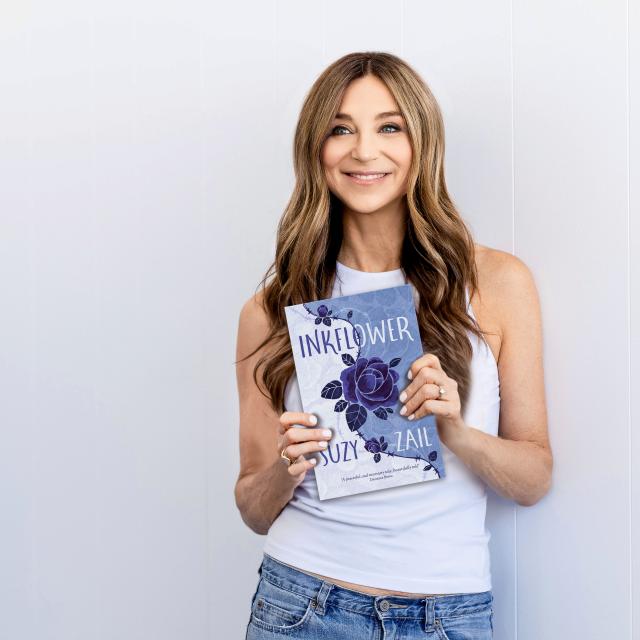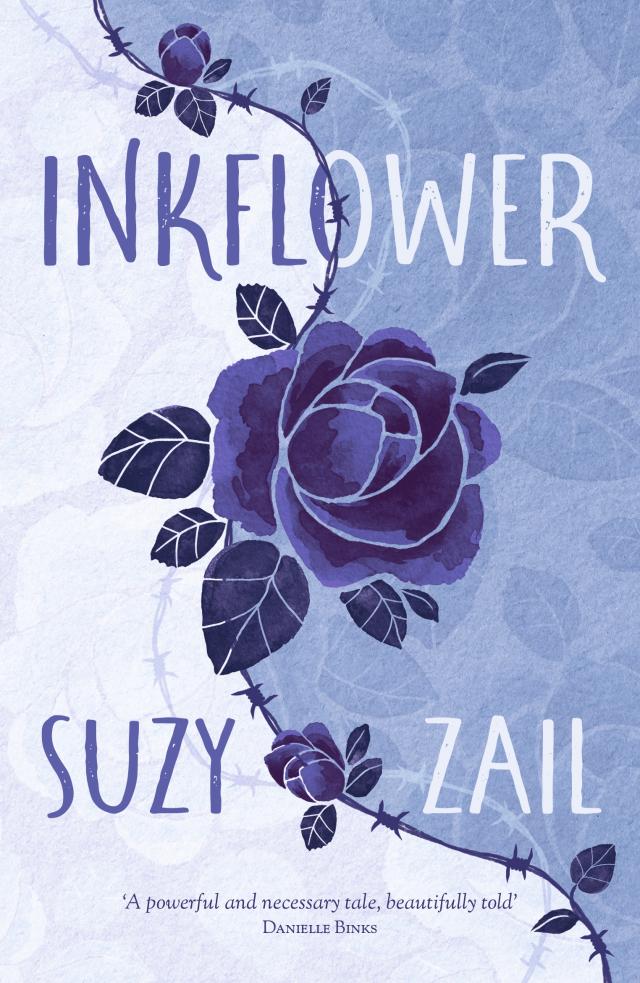By Casey Neill
Suzy Zail’s young adult novel Inkflower is a work of fiction.
“But it’s the truest thing I’ve ever written,” she said.
Readers immediately learn that Emil has motor neurone disease and six months to live.
He gathers his family, including 16-year-old daughter Lisa, to reveal the truth about his past.
“Like Lisa’s dad, my father was diagnosed with motor neurone disease and given six months to live,” Suzy said.
“Like Lisa’s dad, mine sat us down and told us his story.
“The challenge was revisiting the feelings my dad’s death stirred in me 20 years ago.
“This book was my chance to dig deeper and truly grieve.”
Inkflower is about a Holocaust survivor who buried the horror of his teen years to build a new life in Australia.
“My dad, when he came out of the war, he didn’t just survive – he thrived,” Suzy said.
“Everything was possibility and hope.
“He never spoke about what he went through. He put walls up.
“I grew up doing the same thing.
“Even when he died, I just took his lead and put the walls up.”
The Brighton author tore them down to imagine how a teen would have lived her experience.
“I just started bawling,” she said.
“It was the first time I’d really properly let myself.
“Lisa is younger, angrier, and more unsure of herself than I was … but she’s me.”
Suzy wrote down her father’s life story when he became ill and let down his walls.
“It was a beautiful project we could do together,” she said.
Inkflower features the tales he shared with her, along with details from a video memoir he made for the Melbourne Holocaust Museum.
“Telling it to a stranger, it was different to him telling us,” Suzy said of discovering the tape.
“He was still protecting his kids. He was cushioning us.
“He spoke about being hungry, not starving. He told us about death, not murder.
“He didn’t want to be the one to introduce us to hate.”
Suzy contrasts his story with chapters told by Lisa, set in the 1980s.
Her schoolmates and boyfriend don’t know that she’s Jewish or that her father is dying.
“When my father was sick I took a good three or four weeks to tell my best friend,” Suzy said.
Lisa at first listens to her father’s story because she’s forced to, “Later because she wants to understand who she is and where she comes from.”
“Maybe, in Inkflower, I’ve created something healing; something kids can take forward into their lives when they encounter someone who’s sick or someone in the schoolyard who’s being bullied.
“A book that lets them hold onto hope and build resilience.”
Suzy’s three children are now aged in their twenties.
“They were all toddlers and young children when my father was sick,” she said.
“They didn’t have all these ideas in their mind about what it means to be sick.
“He was just their grandpa.”
She fondly remembers her dad giving them rides around the garden in his wheelchair, and them helping to feed him.
“I think it was an incredible lesson for them, too,” she said.
“To be patient, to listen, and to just love him for what he could give them.
“He lived his illness so beautifully and bravely.
“It can be a time of learning and growth and connection.
“It can be a beautiful, rewarding experience.”
Suzy started her working life as a lawyer. Recording her father’s story changed her path.
“After I’d written about my father’s tragic, brave life in The Tattooed Flower, I couldn’t go back to being a lawyer,” she said.
She quit her job, wrote for local papers and magazines, went back to university, and wrote several more books.









